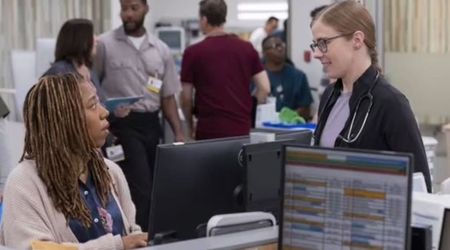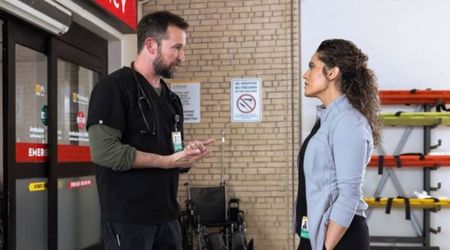‘NCIS: New Orleans’ Season 7 Episode 3: Is the show sugarcoating police brutality in its attempt at neutrality?

Spoilers for ‘NCIS: New Orleans’ Season 7 Episode 3 ‘One Of Our Own’
It seems that this season of ‘NCIS: New Orleans’ is going all out when it comes to dealing with real-life socio-political themes. Where the first two episodes dealt with the outbreak of the coronavirus pandemic, this episode — and by the looks of it, future ones as well — will take on police brutality and the Black Lives Matter movement.
While the show only makes a passing mention of the latter in this episode, the story is definitely one that has much to do with the reason why the protests sprung up, and have been springing up across the country in the last few years — systemic police violence against minorities. Pride and the team take on a group of dirty cops when they discover that a murder victim was also a key witness in multiple excessive force cases.
The NCIS team, as has been thoroughly established so far, is undeniably a liberal one. The crew has diversity, not just in race, but also in gender and sexuality. And while an argument can be made that the show tries to present a 'woke' law enforcement force, the problem with this episode is not the team per se. It is with how police are portrayed.
While the show has definitely dealt with a lot of systemic issues — including white supremacist terrorist groups — when it comes to police problems, does it somehow try to create a balancing act? In this episode, we see that while there are corrupt, racist, and authority-entitled cops, there is an obvious attempt to see them as a kind of aberration. And not a part of the system of law enforcement itself.
As many Black Lives Matter leaders (as well as journalistic exercises) have pointed out, there are gross systemic problems that lead to police brutality — not just some rotten apples here and there. And more than that, cops seem to have a hard time acknowledging that fact in itself. As per a Pew Research Center report from 2017, police and the public hold “sharply different views about key aspects of policing as well as on some major policy issues facing the country”.
For example, 67 percent of the police but only 39 percent of the public describe deaths of Black folk at the hand of cops as isolated incidents rather than signs of a broader problem between the Black community and police. “When this overall finding is analyzed by race, an equally striking result snaps into focus: About seven-in-ten White officers (72 percent) but fewer than half of all Black officers see these encounters as isolated incidents,” the report said.
Speaking to the BBC about demands for structural changes in policing in the US, Terence Hopkins of the Dallas police department, who has been a police officer for 30 years, said in June this year, "You tend to be protective of your industry. When individuals say, 'you're doing something wrong,' we tend to go the other direction, or not admit our fault in it."
As the episode ended, the cops who allegedly have been guilty of multiple instances of the use of excessive force were not yet brought to justice. So, there is a possibility that as the story moves forward, we shall see a better representation of these ground realities, especially on how cops view the so-called rotten apples. And just how much they defend or critique the system that regularly and effectively churns out rotten apples.
'NCIS: New Orleans' airs on Sundays at 9 pm on CBS.










